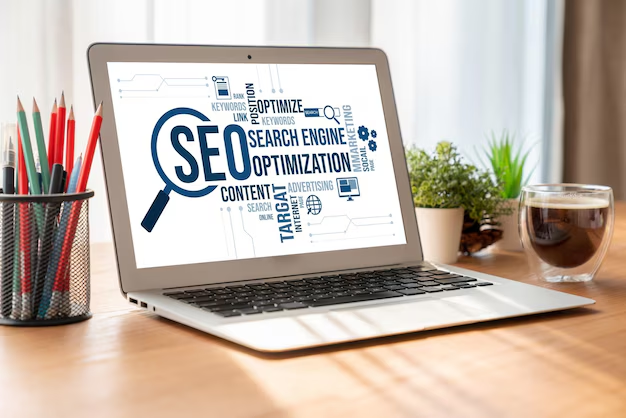Introduction
Search Engine Optimization (SEO) has undergone a significant transformation over the years, with artificial intelligence (AI) and machine learning (ML) playing a crucial role in shaping modern search engine rankings. Traditional SEO tactics are evolving, and businesses need to adapt to these changes to remain competitive. AI-powered SEO is not just about keywords anymore; it focuses on understanding user intent, improving search experiences, and optimizing content dynamically.
In this blog, we’ll explore how AI and ML impact search rankings, the key AI-driven algorithms to watch, and how businesses can leverage AI for better SEO results.
The Role of AI in SEO
AI has enabled search engines like Google to process vast amounts of data and deliver more accurate, relevant, and personalized search results. Machine learning algorithms analyze user behavior, search patterns, and engagement metrics to refine rankings and improve search experiences. Here’s how AI is influencing SEO:
- Understanding Search Intent
- AI can determine whether a user is looking for information, navigation, or making a purchase.
- Google’s RankBrain and BERT analyze query context rather than just matching keywords.
- Content Optimization
- AI-driven tools help analyze content for relevance, readability, and keyword placement.
- Natural Language Processing (NLP) assists in creating high-quality, user-focused content.
- Voice Search and Conversational Queries
- Virtual assistants like Alexa, Siri, and Google Assistant use AI to process spoken queries.
- Optimizing for voice search requires a focus on long-tail keywords and conversational phrasing.
- Automated SEO Strategies
- AI-powered platforms like Clearscope, Surfer SEO, and MarketMuse suggest content improvements.
- AI tools help generate meta descriptions, headings, and structured data markup.
Machine Learning Algorithms Shaping Search Rankings
Several AI-driven algorithms are transforming how search engines rank pages:
1. Google RankBrain
- Uses ML to interpret search queries and rank results based on relevance.
- Adjusts rankings dynamically based on user interactions and engagement signals.
2. BERT (Bidirectional Encoder Representations from Transformers)
- Helps Google understand the context of words in a sentence.
- Improves the accuracy of search results, especially for complex and long-tail queries.
3. MUM (Multitask Unified Model)
- AI-driven algorithm that understands information across different languages and formats.
- Enhances search results by processing text, images, and even videos together.
4. Neural Matching
- Helps Google relate words to concepts instead of just matching keywords.
- Enhances ranking accuracy for ambiguous or less common search queries.
How Businesses Can Leverage AI for SEO Success
- Optimize for User Intent
- Use AI tools like Clearscope and Frase to identify relevant topics and structure content accordingly.
- Focus on answering user questions directly to improve search rankings.
- Leverage AI Content Optimization Tools
- Use AI-driven platforms to improve content quality, readability, and keyword usage.
- Ensure content aligns with Google’s E-E-A-T (Experience, Expertise, Authoritativeness, and Trustworthiness) guidelines.
- Enhance Technical SEO with AI
- AI tools like DeepCrawl and Screaming Frog identify technical SEO issues.
- Implement AI-driven solutions for site speed optimization and mobile responsiveness.
- Improve Voice Search Optimization
- Structure content with conversational language and question-based phrases.
- Optimize for featured snippets, which are commonly used for voice search responses.
- Use AI for Predictive Analytics
- AI can analyze historical data to predict future SEO trends and search behaviors.
- Businesses can adjust their SEO strategies proactively based on AI-driven insights.
The Future of AI in SEO
The role of AI in SEO will continue to expand, with innovations such as:
- Automated content generation for personalized search experiences.
- AI-driven backlink analysis to determine high-quality link-building strategies.
- Real-time search result adaptation based on user engagement and AI-driven insights.
Businesses that embrace AI-powered SEO will have a competitive advantage, ensuring their content remains relevant, visible, and optimized for future search trends.
Conclusion
AI-powered SEO is revolutionizing search rankings, making it essential for businesses to stay updated on the latest AI-driven strategies. By leveraging machine learning, understanding search intent, and optimizing content with AI tools, businesses can enhance their visibility, drive traffic, and stay ahead in the competitive digital landscape.Digi Magneto specializes in cutting-edge app development solutions tailored to businesses of all sizes. From intuitive UI/UX design to robust backend development, we create high-performance mobile and web applications that enhance user experience and drive engagement.







